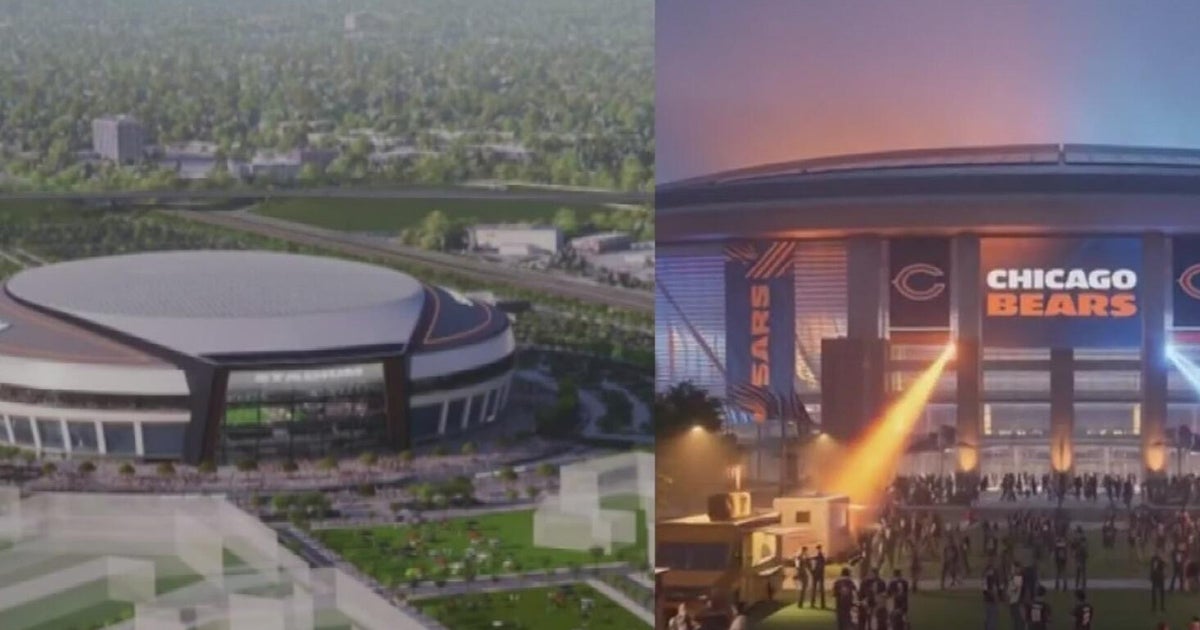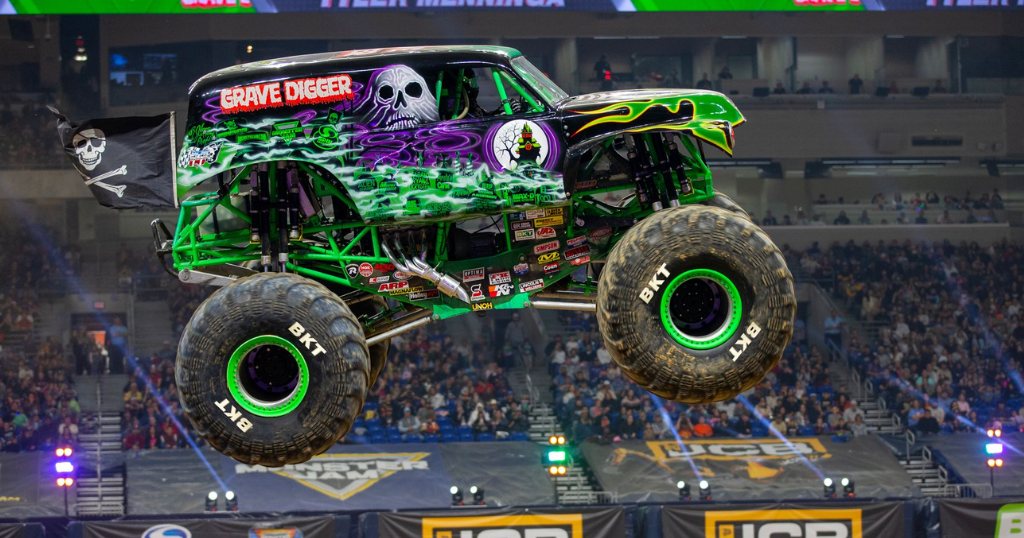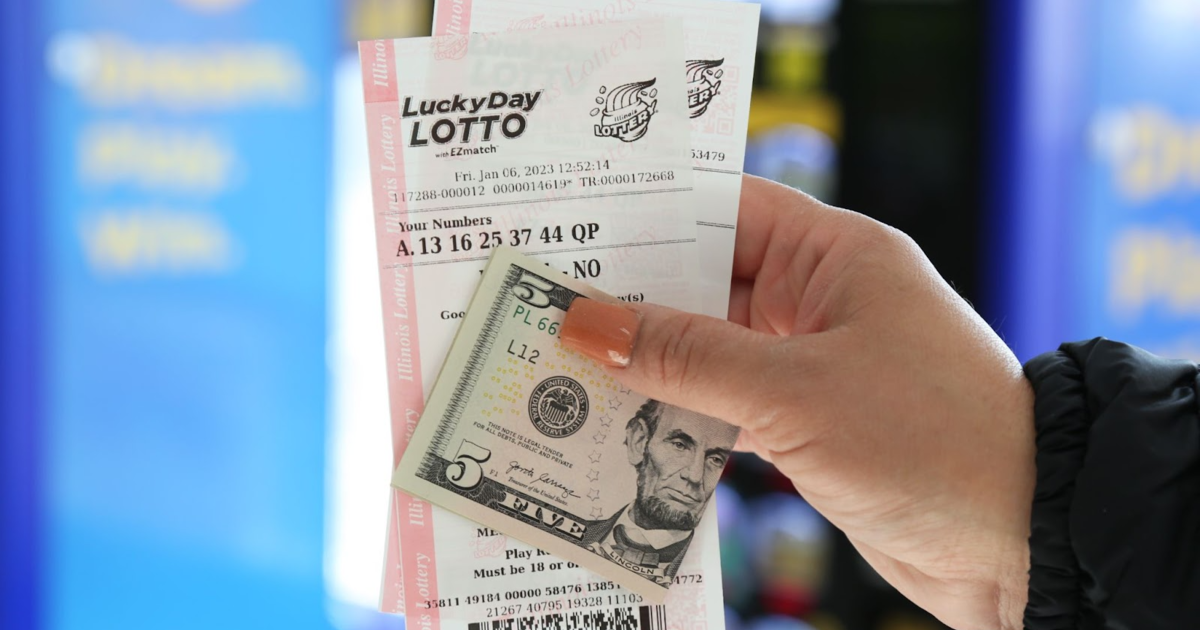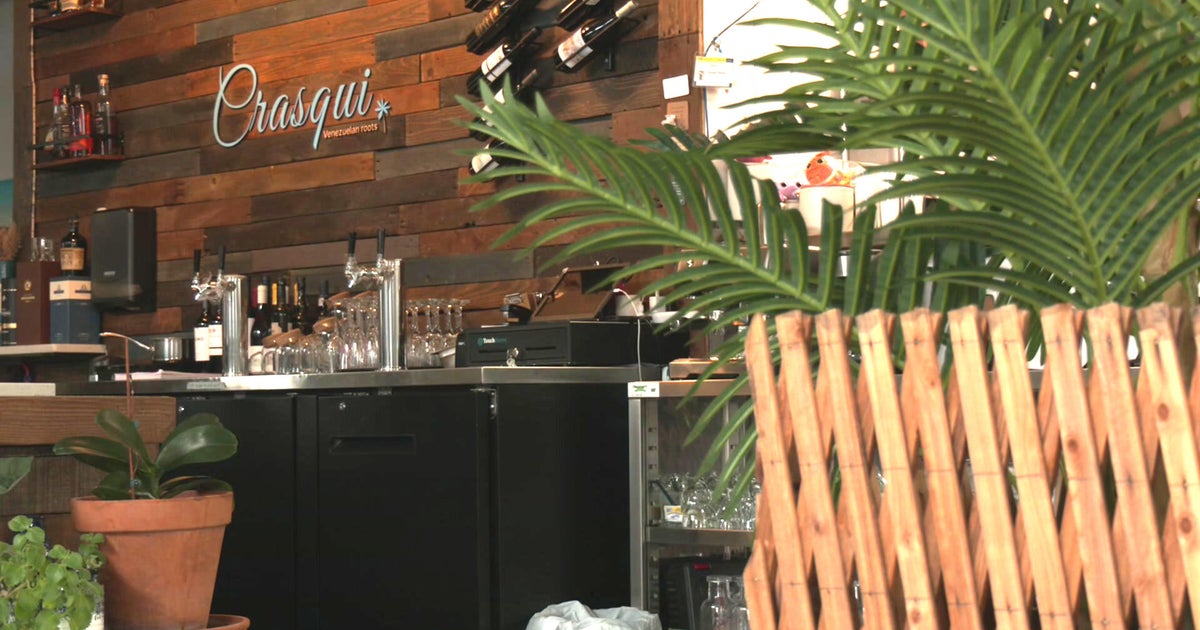Vikings Stadium Wagers On Payback From E-Gambling
ST. PAUL, Minn. (AP) — Minnesota is betting big that bringing technology to small-dollar bar gambling will draw a surge of new players whose wagers will help build a $975 million football stadium for the Vikings.
But even those involved in the charitable gambling industry question whether the customers and the money will be there when paper pull-tabs and bingo are translated into animated games on portable electronic devices. And legislators were concerned enough to include backup financing in the new stadium law in the form of a sports-themed lottery and a stadium suite tax.
"I'd be shocked if it's successful," said Roger Richter, who oversees gambling for the Burnsville Lions Club, one of the state's top-grossing charitable gambling operations. "I don't think it's going to make the money that everybody thinks it's going to make."
Lawmakers approved the stadium deal based on projections showing annual tax collections from pull-tabs and bingo would more than double, from $37 million to almost $95 million when the games are fully implemented by mid-2013. The new technology is projected to push up total wagering from almost $1 billion to $2.3 billion.
The new tax revenue will cover debt service on the state's $348 million contribution to a new stadium in downtown Minneapolis at the current site of the Metrodome, the NFL team's current home.
Minnesota will be the first state to widely offer electronic pull-tabs in bars and restaurants, and the only state with electronic linked bingo, where players in multiple locations vie for a common pot of money. Electronic pull-tabs are allowed in Mississippi bingo facilities and coming soon to fraternal and social clubs in Virginia. California banned electronic linked bingo for charities after it conflicted with American Indian casinos.
Minnesota already ranks as one of the biggest states for charitable gambling. Mary Magnuson, attorney for the St. Paul-based National Association of Fundraising Ticket Manufacturers, said Ohio, California and Florida are probably bigger but they don't report data to her organization.
"We have an extraordinarily large market in the current paper products, and whether the electronic format of that game will prove to be as popular or more popular will just remain to be seen," Magnuson said of Minnesota.
Richter said his customers bought $6.3 million worth of pull-tabs and bingo cards at bars in Burnsville and Savage last year. But he said they aren't interested in the electronic games because they gamble to be social.
Paper pull-tabs are often played by groups buying piles of 50-cent or $1 pull-tabs for their table, then taking turns peeling back the tabs to see whether they won. Richter said he won't add the electronic versions when they hit the market in September or October.
The concern was echoed by others.
"If you've got an electronic machine at the bar, I don't know how you share that with your buddies," said Brian Kirkpatrick, gambling manager for Confidence Learning Center, a camp for developmentally disabled, deaf and hard-of-hearing people near Brainerd.
Kirkpatrick hasn't decided yet whether to offer the games by his organization, which sold $8 million worth of pull-tabs, bingo, tip-board bets and raffle tickets last year. He said the electronic games have the potential to help charities raise more money for causes ranging from youth sports to job training for the disabled. But first he needs to see whether the new technology will boost gambling revenues enough to offset the expense.
Tom Barrett, who heads the Minnesota Gambling Control Board, said the state's projections of new gambling revenue and taxes are conservative. He estimated that 2,500 of the state's 2,800 charitable gambling sites will add electronic pull-tabs and 1,500 will offer electronic bingo. He expects a change in tax law to result in the charities offering bigger prizes starting in July for the paper versions, piquing interest in the games.
Vendors who apply to sell the electronic devices in Minnesota will face criminal background checks and product testing.
The new devices will be available only in establishments with liquor licenses. Players will have to show a photo ID and pay cash to an operator. The law limits the number of electronic devices in each establishment. The maximum pull-tab win is $299 on a $1 bet.
Barrett expects the electronic games to offer eye-popping graphics in the biggest technological change since pull-tabs came along in the mid-1980s. However, the stadium law prohibits spinning reels or other images "that mimic a video slot machine."
"What's being proposed in Minnesota is just the automation of what's being allowed in the paper format, but with the automation will come a little more animation," Barrett said.
King Wilson, who represents charitable gambling organizations as head of Allied Charities of Minnesota, said charities are waiting to see what vendors offer before deciding how far to go with the electronic games. The hope is to draw in younger, technologically savvy players.
"There are people that are much more technologically inclined that are just going to prefer to give a try to something on a device like this, where they haven't had an attraction to paper pull-tabs," Wilson said. "It's another option."
Among those weighing the options is Al Howey, gambling manager for the Hanover Athletic Association west of Minneapolis. Howey said he hopes the new technology will raise more revenue, but hasn't decided whether to offer it in bars in Hanover and Rockford, where pull-tabs and bingo raise money for youth sports and scholarships.
"Of course, the young people in the country, they like the gizmos, so that will help," Howey said.
(© Copyright 2012 The Associated Press. All Rights Reserved. This material may not be published, broadcast, rewritten or redistributed.)







